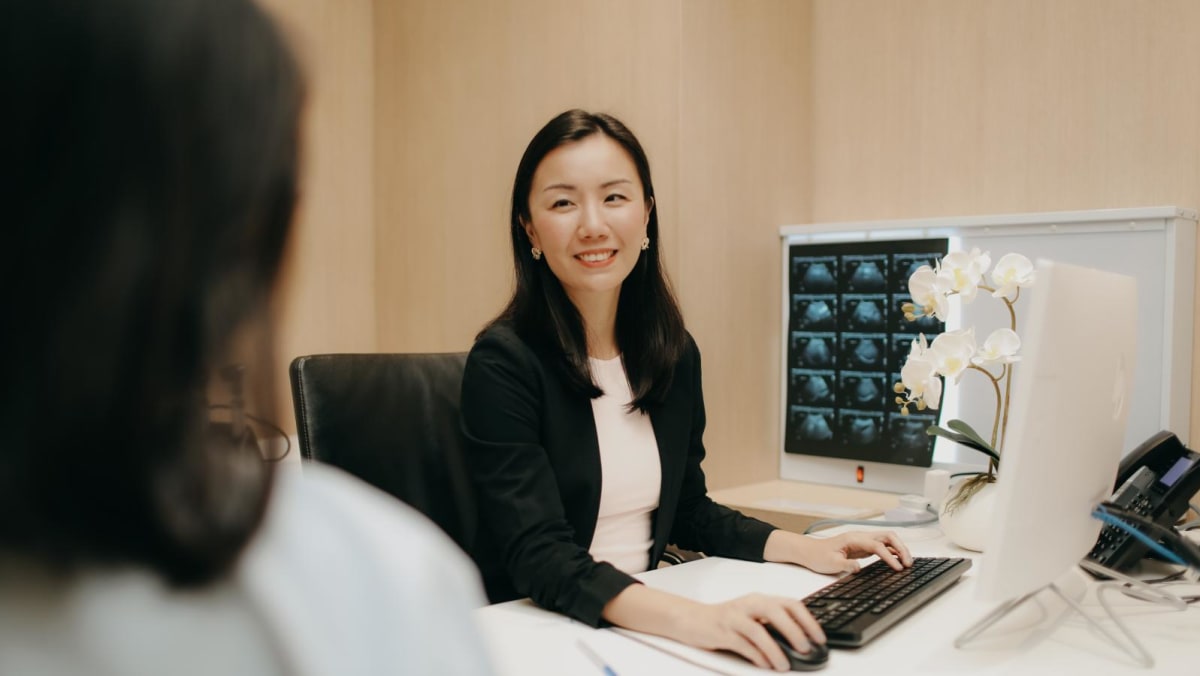How are you feeling? What are you fearful about? Do you need clarification on something a doctor once told you or a piece of advice offered by a friend?
These are questions practically unheard of in doctors’ consultation rooms and it’s not for a lack of concern.
Healthcare systems around the world are overstretched, according to a 34-country survey conducted by global research firm Ipsos in 2022.
And even though Singapore was not among the countries studied, medical professionals here have reported feeling overwhelmed and burnt out.
This can result in doctors’ consults becoming a “get-in-and-get-out” situation, with the precious minutes they have with their patients being dedicated solely to the medical aspect of their treatment journey.
‘TALK THERAPY’ AIDS RECOVERY
This is concerning to Dr Michelle Tseng, a female radiation oncologist who is perhaps the only one of her kind practising in the private healthcare sector.
There needs to be some form of “talk therapy” and that need is especially acute in cases of breast cancer – an affliction whose devastating effects can last long after recovery, said Dr Tseng, who is part of Asian Alliance Radiation and Oncology (AARO), a specialist oncology group.
She studied medicine at Imperial College London and returned to Singapore in 2010 to do her internship at the National University Hospital (NUH), Tan Tock Seng Hospital and KK Women’s and Children’s Hospital.
“I don’t find that to be enough time and I am often rushing through my consultation. That’s not the kind of consultation that I would want for my patients,” said the 39-year-old.
“Now that I’m in private practice, I have more time. And with this time, I get to ask my patients the questions that I’m pretty sure no other doctor had asked them before.
“Typically, a doctor explains the process and indicates the patient’s next steps. No one actually acknowledges how life-changing and potentially devastating breast cancer can be,” she added.
Dr Tseng, who has 10 years of experience in radiation oncology and has specialised in breast cancer for five, pointed out that patients themselves are often “so focused on the medical treatment plan that they neglect themselves”.
“They tell people they are okay when in fact, there are extremely distressing issues unique to breast cancer,” she said.
There are also issues with navigating the expectations of others and receiving typically unsolicited advice when it comes to decisions about diagnosis and treatment.
Related:
Jobless, broke and diagnosed with Stage 3 breast cancer at 36, this woman turned her life around
Stage 4 breast cancer did not stop this 36-year-old mother of four from competing in a beauty pageant
“So, when I’m in clinic, I make it a point to let them know they can be honest with me about what they are feeling. I assure them that it’s common for doctors not to be able to explain every detail because they have run out of time or whatever, and I encourage them not to be shy to ask what they want.”
Even then, patients may hold back, for reasons such as shock, exhaustion and the fear of being a burden to their consulting doctor, who may be visibly overwhelmed.
Anticipating this, Dr Tseng makes sure a patient takes home her name card, bearing her personal contact details, so that they can take their time to carefully process the discussion and ask follow-up questions from a place of calm and clarity.
“There’s so much going on, I know, and it can be so hard to process everything right there and then, so I encourage them to take their time and come back to me when they’re ready.”
As a celebration of life, in spite of its characteristic trials and tribulations, Dr Tseng and her team take note of patients’ birthdays.
“If they’re having a birthday during their treatment period, we present them with cakes to help them celebrate. Sometimes, we surprise them with their favourite flowers when they’ve completed treatment.”
Dr Tseng cited an instance when a patient began crying before her first radiation treatment (often requiring the use of a machine called a linear accelerator) because she suffered from claustrophobia.
“Our female radiation therapists sat with her, taking the time to understand her fears and encouraging her to proceed. They reassured her and they comforted her. After that first treatment, the rest of the patient’s treatment journey was seamless, probably because she knew she had a supportive team rallying for her at every stage,” she said.
“On top of tapping on our network of experts in areas like physiotherapy and psychology to provide them with more support, we have also visited a patient’s home to suggest fixture modifications to help them adjust to their drastic new circumstances, and to stay safe.
“All these are only possible because we have frequent conversations with our patients and take down the details often overlooked by others,” she added.
Ideally, said Dr Tseng, acknowledging that the patients’ mental and emotional health are important too, is a good first step for any medical institution.
“There should be resources allocated to these needs, complementary to the patient’s cancer treatment plan.
“This could be in the form of a specialist nurse clinic that is run together with the doctor’s clinic where the doctor can ensure treatment is prescribed well while the nurse focuses on the patient’s mental and emotional issues.”
CNA Women is a section on CNA Lifestyle that seeks to inform, empower and inspire the modern woman. If you have women-related news, issues and ideas to share with us, email CNAWomen [at] mediacorp.com.sg.




